| |
|
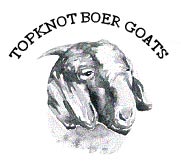 |
|
|
| |
|
|
|
|
|
 |
 |
 |
 |
 |
 |
| |
|
|
|
|
|
 |
|
Housing |
|
Feeding |
|
Breeding |
|
| |
|
|
|
|
|
|
Housing |
|
|
|
|
|
| In the
winter months the goats are loose housed in straw yards. These yards are
large enough to be cleaned out mechanically and are cleaned out about 3
times a year. The muck is then spread on the arable fields on the farm
in the autumn after harvest. |
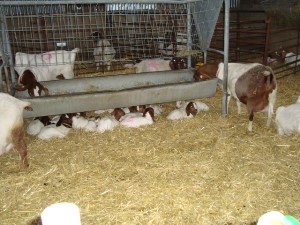 |
| |
|
|
|
|
|
| The main goat shed at the moment is
the old pig rearing shed a 60 x 40concrete built shed. When Nicola and
Peter converted it for the goats at the end of 2011, they installed a
feed barrier including self locking head yokes. This has proved a real
help at feeding time. Also, the adult goats can have their feet cut and be vaccinated etc.
without being chased around and caught! |
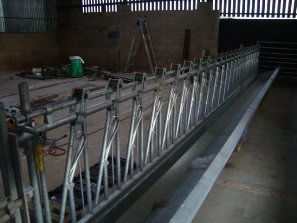 |
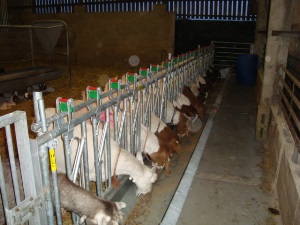 |
| |
|
|
|
|
|
| Feeding |
|
|
|
|
|
The
goats are able to graze grass in the summer months. When housed they
have hay, barley straw and a concentrate feed. (17% Protein Dairy Cattle
pencil). There is access to a salt/mineral lick at all times. Kids are
creep fed the concentrate from about 6 -8weeks old and are weaned at
approximately 3 months of age. The mothers are then dried off before the
next breeding season.
|
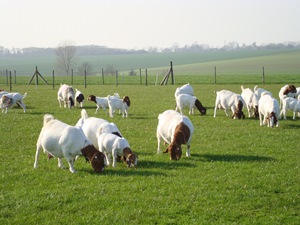 |
| Boer goats are prolific breeders and
200% kidding is common. Does with multiple births are left with 2
kids and the surplus kids a bottle reared, to help ensure even growth of
kids and to prevent teat damage of the doe from kids fighting to suckle. |
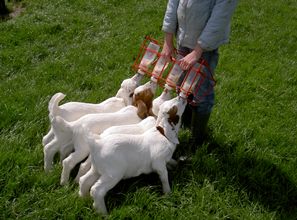 |
|
| Breeding |
|
|
|
|
|
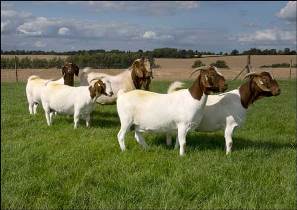 |
Boer
goats have a very long breeding season and does start coming into season
in June and July. Nicola generally breeds the goats in August onwards so
kids are born from early January. This means kids are well grown by the
next breeding season which in the case of males means they can be used
for breeding in their first year.
|
| |
|
|
|
|
|
| Miscellaneous |
|
|
|
|
At present all goat kids kept for
breeding are dehorned during the first week of life. Kids destined for
the abattoir later on are not. The Topknot herd of Boer goats is Scrapie
Monitored and has been since 2002 and is CAE
Accredited with the SAC. The herd also tested clear for CLA in 2018 and
is in a TB free area. Kids are weight recorded at 3, 6 and
9 months of age. Older goats are weighed occasionally in order to
determine dose rates for e.g wormers.
All goats are wormed regularly,
particularly through the summer months. Kids also receive preventative
treatment for coccidiosis. Kids kept for breeding are vaccinated with
Lambivac at approximaely 3 and 4 months of age. |
| |
|
|
|
|
|
| |
|
|
|
|
|







